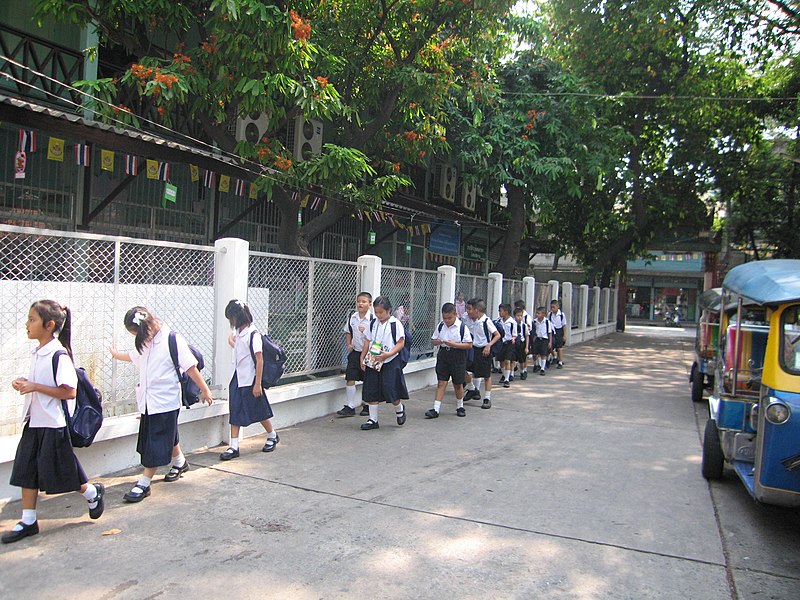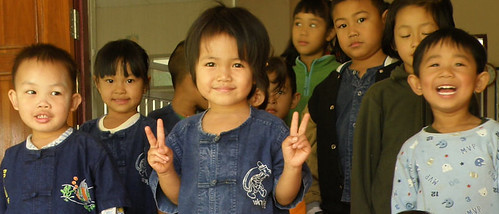Adopting from Thailand
Notice: As of July 14, 2014, all individuals and agencies facilitating international adoptions must be in compliance with the Intercountry Universal Accreditation Act.
The information contained on this website is for educational purposes only and is not intended to be a substitute for professional legal advice. Always seek the advice of a licensed and qualified professional. While the content of this website is frequently updated, information changes rapidly and therefore, some information may be out of date, and/or contain inaccuracies, omissions or typographical errors.
Contents
About Thailand
A unified Thai kingdom was established in the mid-14th century. Known as Siam until 1939, Thailand is the only Southeast Asian country never to have been taken over by a European power. A bloodless revolution in 1932 led to a constitutional monarchy. In alliance with Japan during World War II, Thailand became a US treaty ally in 1954 after sending troops to Korea and later fighting alongside the United States in Vietnam. To learn more please read About Thailand.
Thailand Adoption Alert
There have been adoption alerts over the years for Thailand. To learn more please read the Thailand Adoption Alert page.
Hague Convention Information
Thailand is party to the Hague Convention on Protection of Children and Co-operation in Respect of Intercountry Adoption(Hague Adoption Convention). Intercountry adoption processing in Hague countries is done in accordance with the requirements of the Convention; the U.S. implementing legislation, the Intercountry Adoption Act of 2000 (IAA); and the IAA’s implementing regulations, as well as the implementing legislation and regulations of Thailand. To learn more please read about Thailand and the Hague Convention.
Who Can Adopt
In addition to the U.S. requirements, Thailand obliges prospective adoptive parents to meet multiple requirements in order to adopt a child from Thailand. To learn more please read about Who Can Adopt from Thailand.
Who Can Be Adopted
Because Thailand is party to the Hague Adoption Convention, children from Thailand must meet the requirements of the Convention in order to be eligible for adoption. To learn more please read about Who Can Be Adopted from Thailand.
How to Adopt
WARNING: Thailand is party to the Hague Adoption Convention. Do not adopt or obtain legal custody of a child in Thailand before a U.S. consular officer issues an “Article 5 Letter” in the case. Read on for more information.
Adoption Authority
Child Adoption Center (CAC), Department of Social Development and Welfare (DSDW)
In addition, four non-governmental organizations are licensed to work with the CAC in cases where a child is to be placed abroad. Contact information for each organization is available in the “Contact Information” section.
- Friends for All Children
- Holt Sahathai Foundation
- Thai Red Cross Foundation
- The Pattaya Orphanage
NOTE: If any of the following occurred prior to April 1, 2008 (the date on which the Hague Adoption Convention entered into force with respect to the United States), the Hague Adoption Convention may not apply to your adoption: 1) you filed a Form I-600A identifying Thailand as the country where you intended to adopt; 2) you filed a Form I-600; or, 3) the adoption was completed. Under these circumstances, your adopted child’s visa application could continue to be processed in accordance with the immigration regulations for non-Convention adoptions. For more information, read about Transition Cases.
The Process
Because Thailand is party to the Hague Adoption Convention, adopting from Thailand must follow a specific process designed to meet the Convention’s requirements. A brief summary of the Convention adoption process is given below. You must complete these steps in the following order so that your adoption meets all necessary legal requirements. Adoptions completed out of order may not confer immigration benefits on the adopted child (i.e. it is possible the child would not qualify for an immigrant visa if adopted out of order).
- Choose a U.S. accredited or approved adoption service provider
- Apply to USCIS to be found eligible to adopt
- Be matched with a child by authorities in Thailand
- Apply to USCIS for the child to be found eligible for immigration to the United States and receive U.S. agreement to proceed with the adoption
- Adopt or gain legal custody of child in Thailand
- Obtain a U.S. immigrant visa for your child and bring your child home
To learn more about this process please read about How to Adopt from Thailand.
Traveling Abroad
Applying for Your U.S. Passport
A valid U.S. passport is required to enter and leave Thailand. Only the U.S. Department of State has the authority to grant, issue, or verify U.S. passports. Getting or renewing a passport is easy. To learn more please read about Traveling Abroad in Thailand.
After Adoption
What resources are available to assist families after the adoption?
Many adoptive parents find it important to find support after the adoption. Take advantage of all the resources available to your family -- whether it's another adoptive family, a support group, an advocacy organization, or your religious or community services.
Here are some good places to start your support group search:
Child Welfare Information Gateway
North American Council on Adoptable Children
Adoption Services Support Group for Adopting Persons
SOURCE
Intercountry Adoption, Bureau of Consular Affairs. U.S. Department of State Country Information adoption.state.gov/country_information/country_specific_info.php?country-select=thailand










